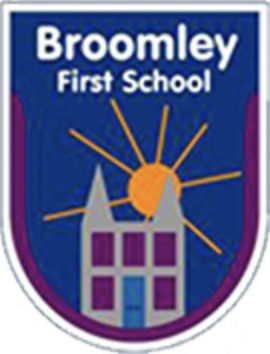In Early Years we follow the Statutory Framework for the Early Years Foundation Stage which is mandatory for all early years providers.
At Broomley First School play is an essential part of our curriculum. Play is central to children’s learning, providing opportunities for them to explore, develop their imagination, communicate with others and extend their language and thinking. The role of adults within the setting is crucial in supporting children’s learning through planned play and extending and developing children’s independent play. Children can explore, develop and use their curiosity and imagination to help them make sense of the world in a secure environment. They practice skills, build up ideas and concepts, think creatively and imaginatively and communicate with others as they investigate and solve problems.
Phonics
We use Little Wandle for our phonics scheme throughout the school.
Early Reading
In Reception we love reading. We read several times a day, sharing stories that support and embed learning across the curriculum. Children take part if guided reading sessions as part of our Little Wandle Phonics programme. Children read 3 times a week, with a focus on decoding, prosody and comprehension. The children then take their reading book home to share with their families.
Talk for Writing
We follow the Talk for Writing programme in Early Years to support the development of communication and language which then moves on to the understanding of story structure and story writing.
Maths
In Reception we follow White Rose Maths inline with the whole school approach. We focus on developing early number skills and problem solving, providing all our children with the knowledge and skills to think like mathematicians.
Outdoor learning
“The modern incarnation of Forest School is based on a Scandinavian model of preschool outdoor education that encourages children explore a wooded site, take risks and learn skills as diverse as tool use and fire craft. Activities should be child initiated, allowing the children to explore the woodland and make choices about their own learning. The practitioner’s role is to observe and support the natural curiosity children have the world around them, enabling the children to decide what they are interested in and what they want to do. There is no place in true Forest School sessions for learning objectives and curriculum links.”
Sam Goddard taken from ‘Sorting the forest (school) from the trees’ blogg yellow-door.net
“This approach involves a skilled practitioner selecting a curriculum area and utilizing the special nature of outdoors to deliver content in an exciting and engaging way. An example of this would be an outdoor maths session that includes collecting and sorting leaves using different criteria…In this example the practitioner already has an idea of the outcomes, and so this approach cannot be described as child-led.”
Sam Goddard taken from ‘Sorting the forest (school) from the trees’ Blogg yellow-door.net
At Broomley First School we use both Forest School and Outdoor learning to support and develop the children’s learning potential in all areas of the curriculum. Forest School Sessions are led by an Experienced Teacher with L3 Forest Leader Qualification they are supported by an experienced Early Years Practitioners who are familiar with both methods of delivery. Children are encouraged to take an active part in the planning and delivery of all sessions.
Children take part in a weekly session where they are able to experience the outdoors in the school Forest School area. Throughout the year the children will also take part in Forest School sessions in our woodland sites at Wheelbirks and or Glebe Woods. The timing of the visits is linked to the seasonal situation and local weather.
Our aim is support all our children develop in a holistic and nurturing environment both indoors and outdoors.
Autumn 1 Curriculum 2025
Reception and Year 1 Welcome Meeting Sept 2025
Useful links

